Faculty & Alumni Spotlight: 18 Questions with Beatriz Hicks
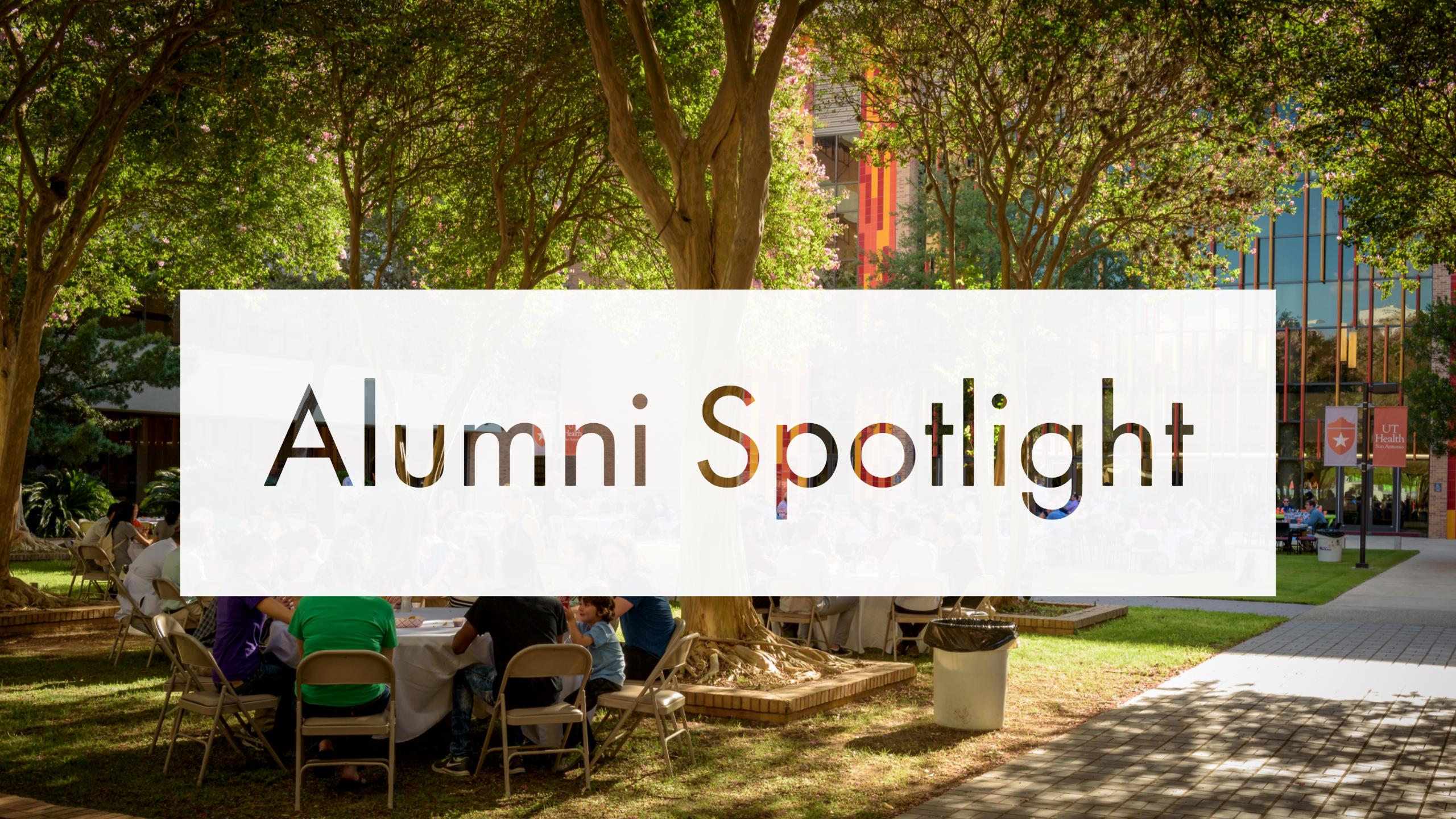
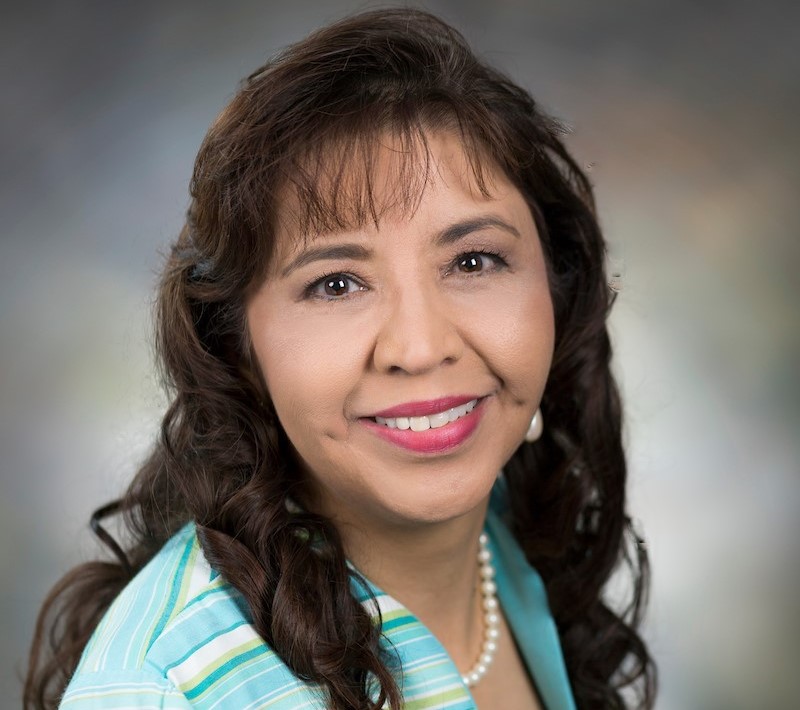 1) Please tell me about yourself.
1) Please tell me about yourself.
I am an alumnus of UT Health San Antonio and graduated with my Certificate in Dental Hygiene in 1986. I then received a Bachelor of Science in Allied Health Education at Incarnate Word College in San Antonio. I further pursued and received my Master of Arts in Higher Education from the University of Texas at San Antonio. I am celebrating my 30th year at UT Health San Antonio teaching dental hygiene.
2) What brought you to UT Health San Antonio?
As a student, I was impressed by the knowledge of my instructors and the enthusiasm they had for dental hygiene. I also fell in love with the campus and the beauty of the city. When I began to teach, I found a great mentor with Dr. Juanita Wallace, PhD, RDH. She inspired me to continue my degrees and hired me as a clinical instructor in 1990.
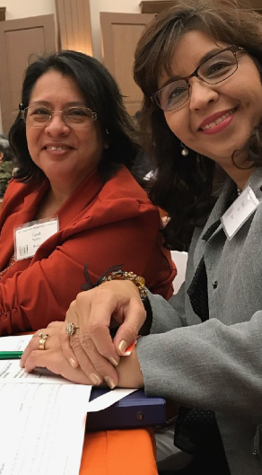 3) Tell me about your research interests and why you are passionate about this topic?
3) Tell me about your research interests and why you are passionate about this topic?
My research interest is in dental public health. I believe it is important for dental hygiene students to develop an understanding of the importance of their education and their future profession. Dental hygiene professionals have a responsibility to help to improve the oral health of their community by becoming involved in community organizations about oral health issues and problems. Hygienists can do this by participating in professional and community meetings, volunteering to serve and provide oral health services to underserved populations, and finally deliver oral health services with respect and dignity to all.
My experience in public health gave me the opportunity to work as a project coordinator with a collaborative federal grant with the U.S. Department of Health and Human Services Administration of Youth and Families, Office of Head Start. The grant established a nationally recognized preventive oral health program that helps to provide Head Start children for the city of San Antonio by providing limited dental screenings and follow-up services for children at risk with urgent dental needs. The grant created a fluoride varnish rotation that includes dental and dental hygiene students who provide preventative services to Head Start children. I also have many years of experience working with a grant for the South, West & Central Consortium Geriatric Education Center with the Division of Geriatrics, Gerontology, and Palliative Medicine. The grant allowed me the opportunity to train dental hygiene students in the delivery of oral health services in long term care facilities. In addition, geriatric educational courses were developed at the graduate level.
My other interests are in veterinary oral health and nutrition. I am a member of Sigma Phi Alpha National Dental Hygiene Honor Society and the treasurer of the Beta Sigma Chapter in San Antonio. I am also a member of Alpha Eta Society, a society dedicated to the service of Allied Health Professionals.
4) What do you want the public to know about your research? Why is your topic important?
I feel it is important to make sure that oral health services are provided to all people. Conditions can be in place to help people access dental services. There is great disparity among the aged and the very young. The latest national data collected on untreated tooth decay among third grade children is as high as 37 percent. Children who have dental decay have problems focusing in the classroom which affects learning. Also, children from low income families have nearly 12 times as many restricted activity days due to dental problems. In the very old, research has shown that older adults are at greater risk of having oral health problems then younger generations. As Americans get older, changes arise and patients can have cognitive changes, compromised systemic disease, difficulty with self-care, and numerous other issues that make oral health a challenge.
Across the lifespan, I believe it is our responsibility as oral health care professionals to arise to these challenges and collaborate with physicians, nurses, families, caregivers, etc. to meet the needs of today’s society to ensure a patient-centered approach to oral care.
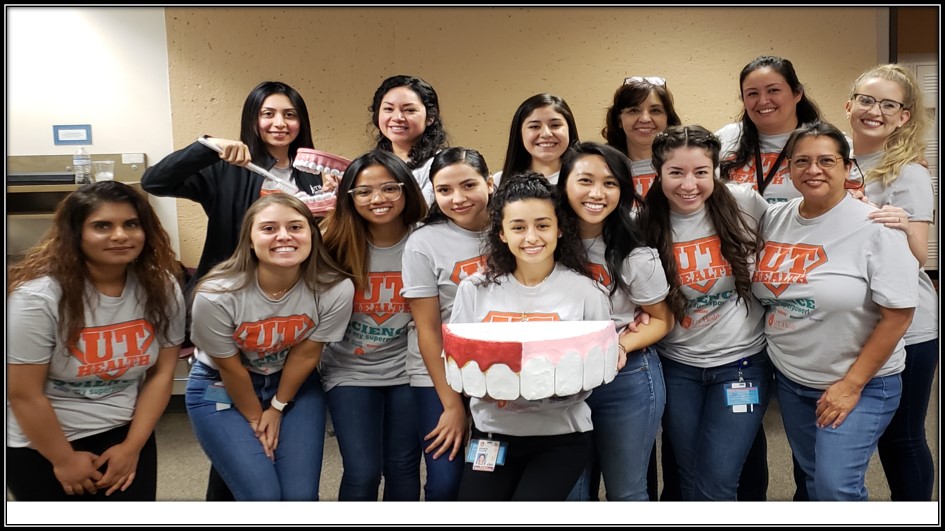 5) What is your favorite part of your job?
5) What is your favorite part of your job?
I like working with underserved populations. I get to mentor and connect dental hygiene students with the community so that they can provide free dental services, participate in health fairs and develop educational community programs that educate the public about oral health.
6) What is the most challenging part of your job?
Time management and trying to organize all the various activities and challenges that comes with working with the community. I also teach classes for the Master of Science in Dental Hygiene program.
7) What do you like most about mentoring students?
I love to see the students successfully graduate from our program and feel a great sense of accomplishment. When students graduate, they are so much more mature, experienced, and they have developed great communications skills as a result of faculty mentorship and teaching.
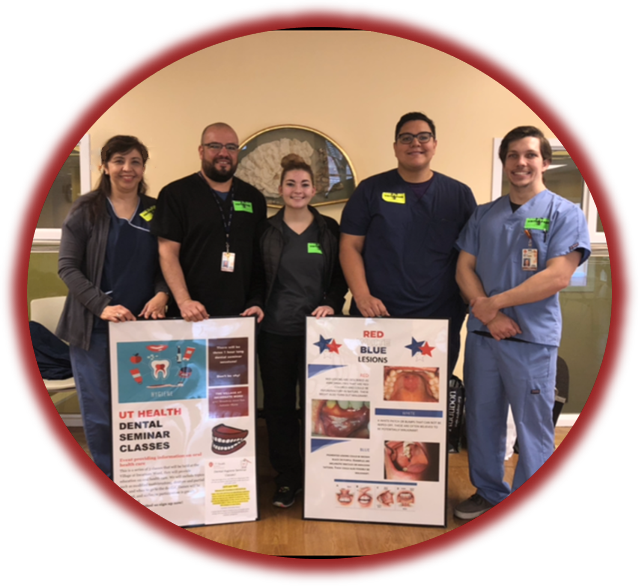
8) How do you like to spend your free time?
I don’t have much free time as I am always busy with projects, teaching, mentoring, etc. Whenever I do have some time, I love to go to conferences where I can learn and further my education.
9) What is the most helpful advice you’ve received?
To believe that anything I want to do can be accomplished through hard work and perseverance.
10) When did you start becoming interested in science?
When I was in high school, I worked at a pediatric dental office. There was a dental assistant who was going to dental hygiene school who became my mentor. She told me about the profession and told me I had to take a lot of science courses. I was immediately interested in the mouth and body connection. I also worked as a volunteer in a hospital where I got to see medical professionals in action, and I liked what I saw and wanted more of it.
11) Growing up, what did you want to be?
I originally wanted to be a nurse, but once I started to work in a dental office, I found my niche.
12) Who has influenced you the most in life?
My parents were the most influential in my life. They taught me to never give up and to work hard for what I wanted. They supported me as I went through school to get my degree. I have been privileged to have so many others to support me as well such as my husband, my daughter, my family, and friends and colleagues. I feel very bleased to have friends and family as they have made a big difference in my life.
13) What do you consider your favorite hobby?
I love to read and enjoy camping, walking, and spending time with my dog. I love to watch the Spurs play, I am a devoted fan.
14) What is your favorite quote?
“It’s not how much we give but how much love we put into giving.”
Mother Theresa
15) If you could have dinner with one person, living or dead, who would it be?
My mother just recently passed away in September. I would give anything to see and touch her once again. Losing a parent is the most difficult thing to go through. My mom would say to “never take your loved ones for granted, because you never know when it will be the last time you get to give them love.”
16) If you could travel anywhere, where would you go?
I would love to go to the Holy Land and Europe.
17) If you could only eat one thing for the rest of your life, what would it be?
I was born and raised in El Paso, Texas. There is a restaurant in El Paso called Chico’s Tacos. I think that I could eat those tacos every day. They are the best tacos I have ever tasted. Whenever I go to visit my family the first place we go to eat is Chico’s Tacos.
18) Tell us something about yourself that otherwise we wouldn’t know or guess.
That I am active in the feral cat coalition where I have had the opportunity to rescue and neuter/spay over 15 feral cats in my neighborhood. Spaying and neutering them keeps the population of cats down where you live. The city will not pick up a feral cat that has clipped ears as they know they have been spayed/neutered and vaccinated. Once the cats are released, they are free to live in their neighborhood cat colonies in a healthier way.
